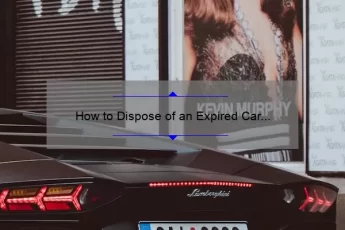While we strive to provide accurate information on our site, data can differ from other sites. Please consult the insurance agent or company’s website for precise details. Also, please remember that pre-qualified offers are not binding and that your credit rating may not be accurate. To ensure the accuracy of these pre-qualified offers, you should contact your credit report company, TransUnion, or insurer to clarify any discrepancies. Also, check with your insurance agent about available discounts.
Multi-car insurance
Multi-car insurance policies can help you save money on car insurance because they can cover several cars under one policy. Usually, you’ll need to provide information about each vehicle and driver. Some companies will also ask you to choose the primary driver for each car. This can help you avoid paying for the insurance of inexperienced drivers.
Most insurance carriers offer multi-car discounts. These discounts can save you anywhere from 10 to 25 percent on your car insurance. You can save more if you live at the same address. The amount you can save will vary from carrier to carrier, but the savings can be substantial.
Multi-car insurance policies are also ideal for families because they can ensure that all vehicles are covered. In addition, multi-car insurance policies benefit families with adult children who live at home. The cost of insurance for multiple cars can add up quickly, and multi-car policies can help you cut costs by a good deal.
It is important to note that multi-car insurance is required in most states. However, state laws vary when it comes to collision and comprehensive coverage. The coverage you get depends on the type of car you drive and where you drive it. Therefore, you should decide how much coverage you need for each vehicle.
Multi-car insurance policies can save you up to 15 percent or more on car insurance. This is because they cover more than one vehicle at the same address and are often cheaper than separate policies. They can also include a multi-car discount for each car. This discount depends on the insurer but can range from ten to twenty percent on your car insurance premium.
Defensive driving lessons
Taking a defensive driving course can help you become a safer driver and help you avoid tickets and points on your driving record. It can also help you save money on your car insurance. Many car insurance companies offer discounts for completing a defensive driving course. These discounts are often offered to young or inexperienced drivers, though some companies may even offer discounts regardless of age.
The qualifications to receive a discount vary from state to state and insurance company to insurance company. Some states will only offer the discount to drivers under 25, while others will deliver it to people aged 25 and up. If you need more clarification, talk to your insurance agent about whether or not the course you’re considering offers this discount.
You’ll likely be asked if you have taken a defensive driving course when shopping for car insurance. Defensive driving classes can be taken anytime during your policy period. Some insurers will automatically adjust your premium if you stay accident-free. While these discounts vary, they can add up over time.
You can find a defensive driving course online or at a local driving school. Make sure your insurance provider approves the system before signing up. Some online courses cost just $25 to $50. But over time, the savings can add up to hundreds of dollars on your insurance premium.
In addition to saving money, defensive driving courses also help you become more responsible. Following these rules will decrease your risk of getting into an accident and eliminate any points on your driving record. A defensive driving course can help you get a discount on your car insurance policy.
Pay-per-mile options
Pay-per-mile options can save you a great deal of money on car insurance. These types of insurance are usually designed for drivers who only drive a certain number of miles per year. For example, you may get a base rate of $34 for your policy and then pay 5 cents for each additional mile. In this way, you could save fifteen or more dollars per month on car insurance.
Pay-per-mile car insurance options are based on your driving record, which auto insurers can verify. Some companies use telematics devices to track mileage, while others accept photos of the odometer. You will most likely be charged a monthly base rate and a per-mile fee.
Pay-per-mile insurance policies have their pros and cons. These plans can save you fifteen or more dollars per year on car insurance, but you must know that you will need to drive a certain number of miles per year to see any substantial savings. For example, if you drive 5,000 miles per year, you will save $444. However, you will only see savings if you go 13,000 miles annually. The savings can be put toward travel, protection, and even debt repayment.
Pay-per-mile insurance is a popular alternative to traditional car insurance. It’s a great option if you don’t drive much or are infrequently on the road. It’s also cheaper if you go fewer miles than ten thousand miles yearly. However, you’ll still need to install a tracking device in your car. Some companies require that you submit a photo of your odometer once a month.
Credit score
You can save on your car insurance premiums by improving your credit score. The insurance company will check your credit before deciding on the cost of your car insurance. This can be done over time. In the meantime, you can use discounts to lower your premiums. You can check your credit score for free with WalletHub.
Insurers use your credit score to determine how likely you are to make future payments. This allows them to set your premium according to your ability to pay: the higher your score, the lower your premium. The credit score is only part of the equation, though. Some insurers use it only occasionally, while others use it exclusively.
You can save as much as $521 per year on your car insurance premiums if you have a good credit score. That’s about 25% off your full-coverage policy. In contrast, you will likely pay over $350 more yearly if you have a poor credit score.
You can improve your credit score by making timely payments and watching your credit limits. While there is no way to raise your credit score overnight, you can start to improve it slowly. It would help if you started paying your bills on time and paying off your credit cards. This is an excellent way to build up a credit history and improve your insurance score simultaneously.
While your credit score can affect your rate, it is essential to remember that some states do not allow insurance companies to use it. While California, Hawaii, and Massachusetts drivers are exempted from this practice, other states allow insurers to use your credit score to set your rates.








